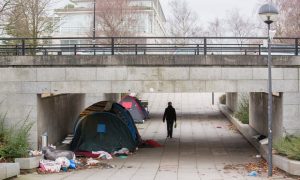The number of people sleeping rough in UK has risen 169% since 2010. The NHS, education and all manner of council services are all in crisis due to chronic underfunding. As the public sphere collapses, excessively rich individuals take an ever greater share of the wealth. Meanwhile the natural world is being trashed at an unprecedented rate. Globally pollution now kills three times as many people as Aids, malaria and tuberculosis combined.
As I said in a blog in October ‘We need a pollution minimizing way of maximizing the benefits of a modern global economy that can bring prosperity to all humans while allowing biodiversity to flourish.’ That socially inclusive and ecologically sustainable goal can be achieved. The technological options are already available. The missing ingredient has been political will. Since the Thatcherite revolution of 1979 there has been a quasi religious belief in market forces and low taxes. It is time to challenge this.
Now might be the time to bring back big government, but in a radically reinvigorated manner. I would like to see the top rates of income tax raised to 100%, top rates of stamp duty and death duties increased, tax loopholes and tax havens closed. Corporation tax should be increased. The basic rate of income tax could also be raised by a few pence. Taxes on all forms of pollution should be set in order to force whole industries out of existence. All forms of advertising should be heavily taxed. Also many areas of government funding should be cut, from subsidies that promote unsustainable farming practices to oil and gas exploration. Many costly projects such as Trident, Hinkley C and HS2 could all be abandoned.
With this vastly increased revenue a lot of vitally important work should be done. A universal citizen’s income could be introduced. Funding for the NHS and education should probably be doubled. Political power needs decentralizing. Local government funding could be increased perhaps fourfold and many new responsibilities could be transferred from national to local government. Funding for socially and ecologically innovative projects would be available.
The conservative party once had a reputation for sound financial management, yet the national debt has massively increased under this incompetent Tory government. I think we could quickly reduce the national debt while creating a paradigm shift towards a socially fair and ecologically sustainable future. The health, education and wellbeing of people now and in the future needs investing in, and to do that we need to raise a lot more taxes.



